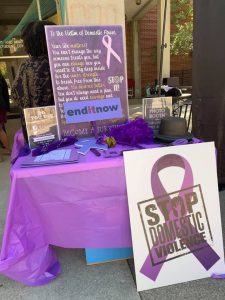Advance Human Rights and Social, Economic, and Environmental Justice.
Social workers believe that every individual has basic human rights, no matter what their status is in society. These basic human rights include freedom, safety, privacy, sufficient living standards, and health care, as well as education. Social workers recognize the human rights violations happening globally and can recognize theories and strategies used to advocate for social and economic justice as well as human rights. Social workers strive to protect the civil, political, environmental, economic, social, and cultural human rights of individuals and seek to eliminate the barriers that stand in the way. As social workers, it is our duty to stay current on events and issues that need attention and stand up for and besides those who are facing injustices in our society.
PRACTICE BEHAVIORS:
3A – Demonstrate leadership in advocating for human rights, social, economic and environmental justice.
Field Evidence: My role as the graduate clinical intern at the Chattanooga Autism Center included the opportunities to be involved in community events. One of the biggest events put on by the CAC is their annual autism conference. I had the pleasure to be the speaker coordinator for this event as well as the opportunity to be on the planning committee. Unfortunately due to COVID-19, the conference was pushed to the fall after my internship was completed.
Other Evidence: While not through my academic journey or field placement, I was able to be involved with a spectacular event on my university’s campus through my graduate assistantship with the school of social work department. Through my position, I was responsible for the organization, planning, advertising, coordination, and implementation of #PurpleThursday for Domestic Violence Awareness Month. This included partnering with community agencies for a campus-wide event to raise awareness about domestic violence and toxic dating culture among the students and faculty of Southern Adventist University. Below are pictures of the event as well as myself with Mayor Lamb who attended this event.


3B – Design and implement social action strategies.
Academic Evidence: During my Advanced Policy class, I worked with a group to create an advocacy plan to address Tennesee’s current sexual health education. This paper includes future steps to be taken as well as an advocacy plan on reaching Tennessee legislatures and educating the community on this need.
Field Evidence: Within my first couple of weeks at the Chattanooga Autism Center, I realized that we did not have any Spanish speaking therapists or many resources for the Hispanic community. The CAC has one volunteer interpreter who lives in Knoxville Tennesse who will drive down when she can to help Spanish speaking clients receive services. I knew that more needed to be done for this community, so I created a plan for future use. I looked into the top three insurance agencies that our clientele uses and wrote out steps that the clinic needs to take when a client needs services. This list included what each insurance’s interpreting and translating services were offered, how to access them, and if they had a cost. I did not get to implement this plan, but it is at the CAC for future use.